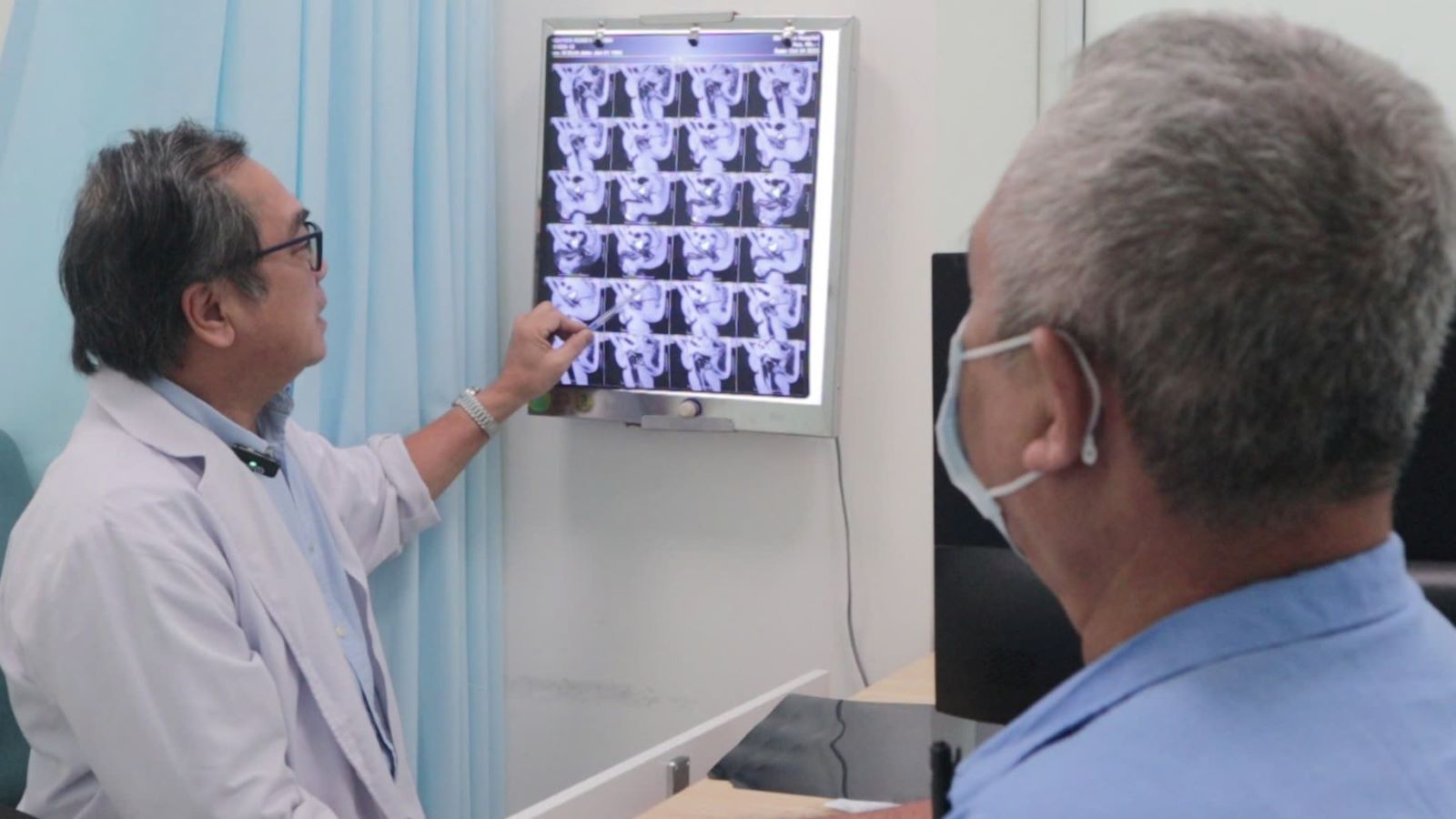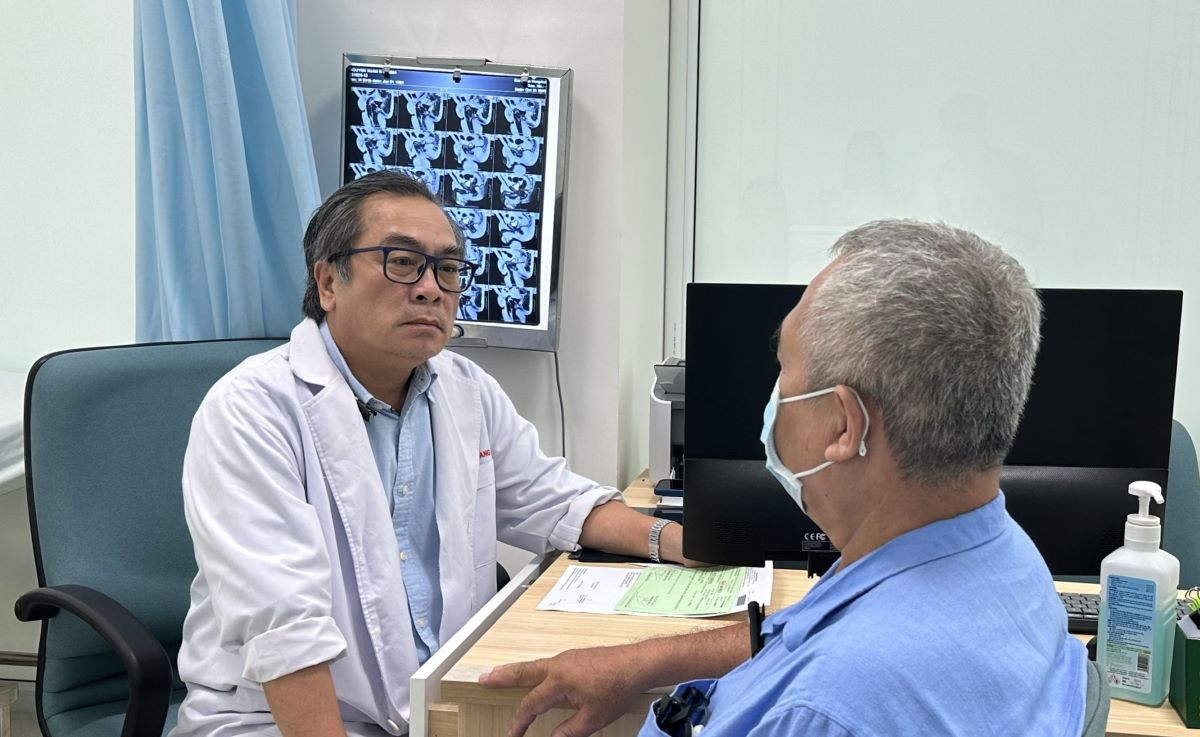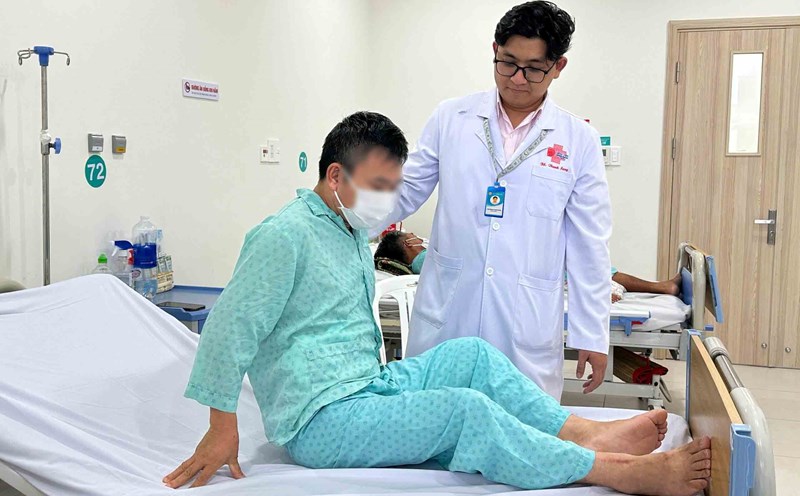Patients stay up all night because they have to go to the toilet every 5 minutes
On November 5, Binh Dan Hospital said that in the period of 2016 - 2025, the unit has performed 1,167 surgeries using robots to treat prostate cancer, accounting for about 75% of the total number of surgeries for this disease here. Robotic surgery has now become a key technique in the treatment of prostate cancer at the unit, with an average growth rate of about 46% per year over the past decade.
Mr. N.X.H (61 years old, Ho Chi Minh City) is one of the patients treated for prostate cancer with robotic surgery here. After 3 years of surgery, Mr. H has just had a regular check-up. The test results and imaging diagnosis were at normal levels, with no signs of recurrence recorded.

Mr. H's case is a typical example of the benefits of timely medical examination. Before that, Mr. H had been taking medicine for nearly half a year to treat urine because he only thought he had prostate enlargement. However, the symptoms did not improve, causing him to feel uneasy, at their peak there were nights when patients stayed up all night because they had to go to the toilet every 5 minutes.
Dr. Nguyen Te Kha - Head of the Department of Urology, Binh Dan Hospital - said that prostate cancer develops slowly and if detected at an early stage, robotic surgery to remove the prostate from the roots is a "gold standard" treatment method.
This technique also helps preserve the erectile nerve, minimizing the risk of urinary incontinence and erectile dysfunction after surgery. Therefore, the quality of life of patients after treatment is protected, this is an aspect that needs attention in the fight against cancer.
Early screening determines treatment effectiveness
According to statistics at Binh Dan Hospital, only about 20% of patients are diagnosed with early-stage prostate cancer. Most patients come to the hospital when the tumor has encroached on neighboring tissue or metastasized, causing treatment to be combined with many methods such as hormones, radiotherapy or chemotherapy, instead of just needing surgery.

According to Dr. Nguyen Te Kha, screening for early detection of prostate cancer is decisive in the ability to treat thoroughly. However, most patients visiting hospitals do not have the habit of proactively checking prostate health.
Dr. Kha also emphasized the role of grassroots health care in screening. This is the simplest but most effective way to prevent and reduce the burden of prostate cancer in the community.
If detected early, the patient can be treated conveniently, with low costs and a very high prognosis for life over 10 years. Conversely, when the disease has progressed, treatment is complicated, expensive and difficult to preserve physiological and urinary functions.
Men over 50 years old should screen for prostate cancer every year. If there is a relative with the same blood type of prostate cancer, men over the age of 40 need to be aware of screening earlier.











